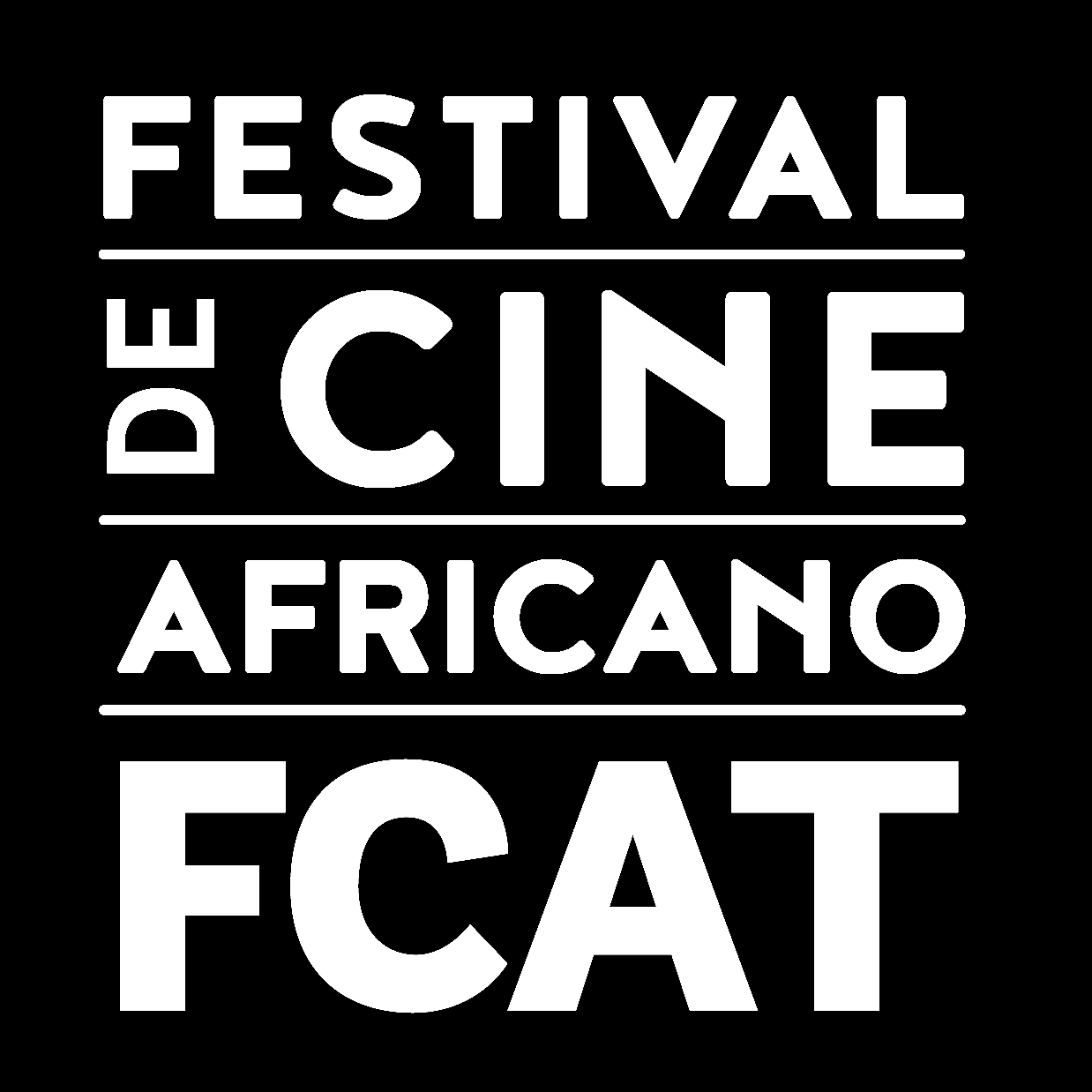Roundtable: Afrofeminist Possibilities: Women in African Cinematographies
- 28 MAY, TUESDAY
- Espacio Lia.me
- Mode: On-site
- 12:30 - 13:30 (CET)
- Language: FRENCH - Simultaneous translation to SPANISH
- Registration: Videopodcast
- Moderator: Alejandra Val Cubero
- Speakers: Myriam Birara (director of The Bride, Rwanda) and Cyrielle Raingou (director of Le Spectre de Boko Haram, Cameroon)
From the direct experience and analysis of two emerging filmmakers from the continent, we discuss how the diversity of African women's identities and experiences have been portrayed in their film work.
In a thoughtful conversation, we explore how African cinema directed by women not only addresses issues related to mainstream social issues such as gender, decolonisation or racism, but also strives to develop innovative languages and represent a wide range of cultural elements. Thus, against a backdrop of images depicting women identifiable with both the continent’s local realities and global contexts, we explore the film as a means to appreciate the richness and diversity of African women’s experiences, in a gathering that will undoubtedly be a powerful testimony to the multiplicity of narratives and perspectives that enrich Africa’s cinematic and cultural landscape.
PARTICIPANTS
Alejandra Val Cubero
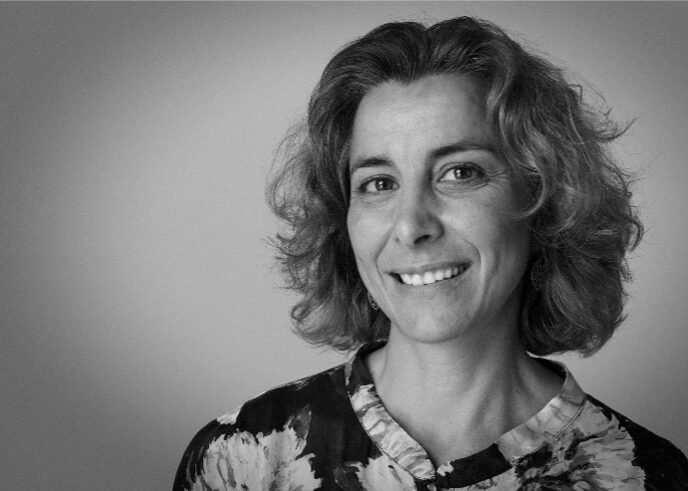
Cyrielle Raingou
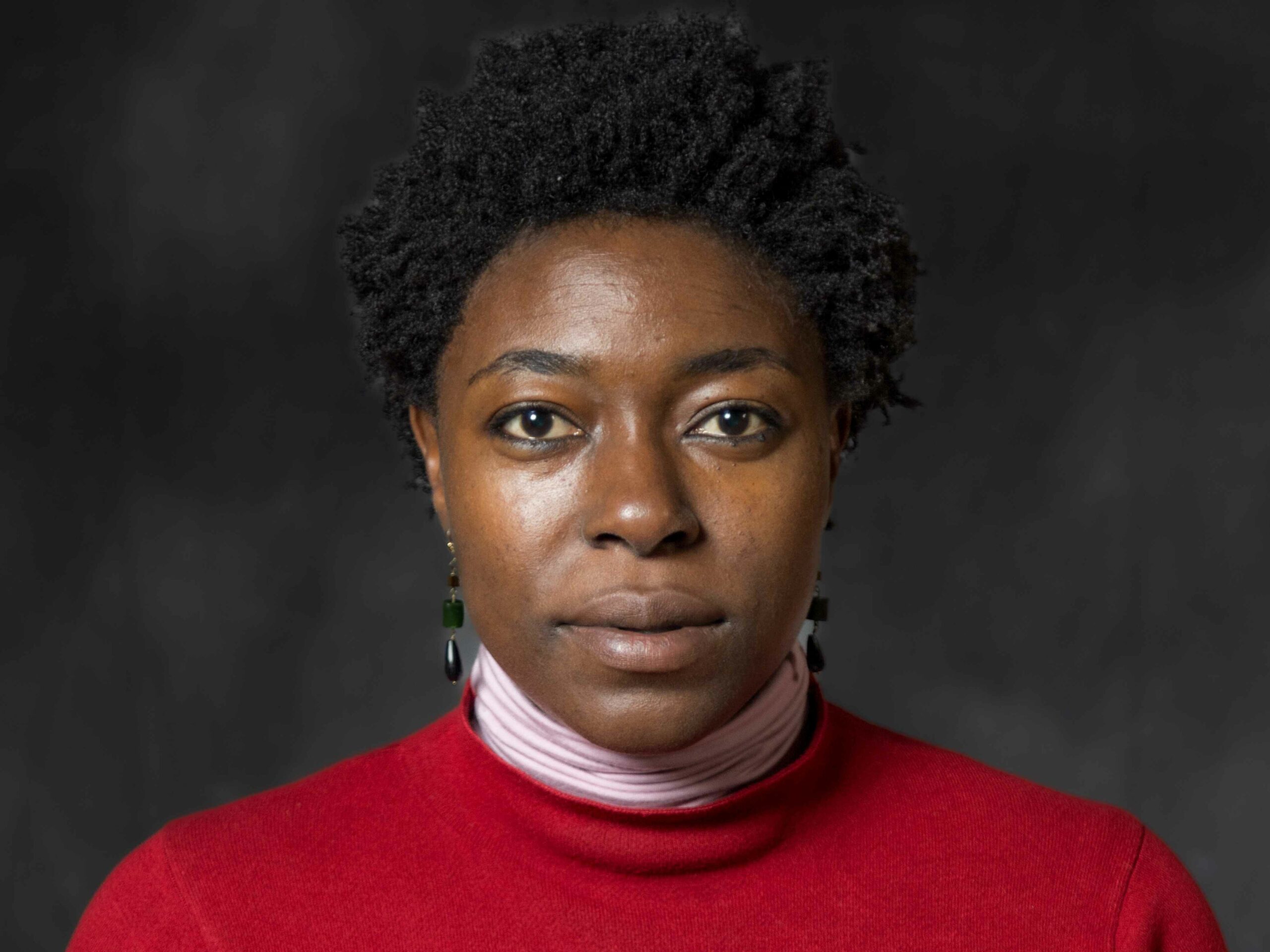

Myriam Birara
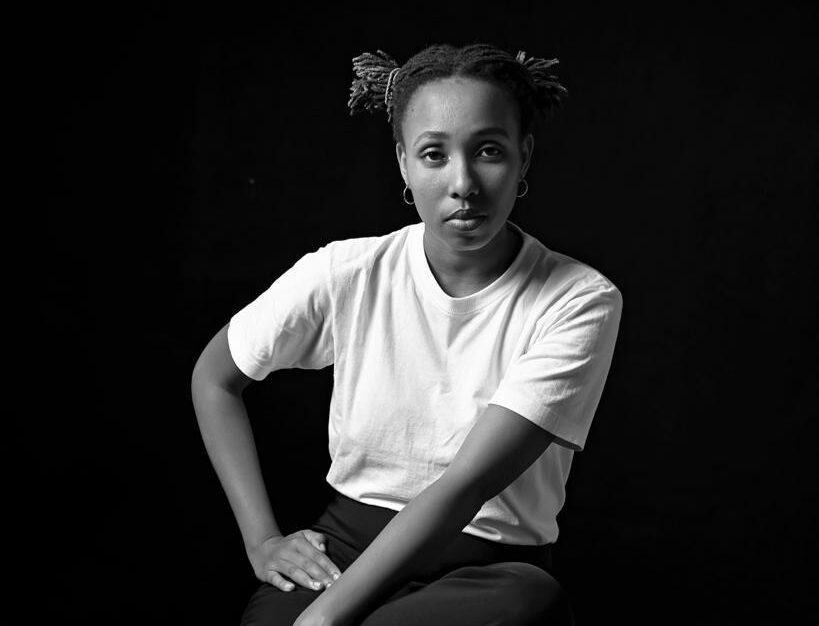

Alejandra Val Cubero is a full professor of Audiovisual Communication at Carlos III University of Madrid and a member of the Tecmerin research group, as well as the Gender Studies Institute of said university. Her experience as a researcher has led her to reside in various countries, including the United States (Harvard University), India (Jawaharlal Nehru University), Afghanistan, and the United Arab Emirates (Zayed University), where she has conducted studies on film and gender, specializing in North African cinema. In line with these interests, she has made significant contributions to the field with several articles, addressing topics such as Algerian directors, contemporary Moroccan cinema, and women’s participation in Tunisian cinema and the Arab revolution.
Cyrielle Raingou is a Cameroonian filmmaker passionate about African cinemas, its promotion on an international scale and the economic interest it raises. She very often uses legends, metaphor, the symbolism of animals to unearth the complexity and mystery within human. She is the recipient of the Kirch Foundation Award with her first fiction feature length “I’m coming for you”. Her first feature documentary “Le spectre de Boko Haram” received the Tiger award at International Film Festival Rotterdam 2023. Cyrielle Raingou holds master’s degrees in law and in film directing.
Myriam Birara, a Rwandan filmmaker and painter born in 1992. Her passion for art from a very young age pushed her to self-taught filmmaking and painting, she got her first taste in filmmaking in 2010 and made few short films from 2011 to 2018 for experimenting and learning purposes. IMUHIRA short film launched Myriam’s Directing career where it was premiered and won an award in official competition at Locarno International Film Festival in 2021. IMUHIRA short film was shown in festival like BFI London film festival, Melbourne International film festival…
February 2023 her debut feature film THE BRIDE was premiered at Berlinale and won a Jury special mention for the GWFF best first feature film Award.
April 2023 THE BRIDE won The Silver Lady Harimaguada de Plata and CIMA award in Las Palmas de Gran Canaria international film festival. It was shown at BFI London film institute in official selection, new directors’ competition in Chicago international film festival and in Festival du nouveau cinema de Quebec official competition and won best actress award and special mention of the best feature film. It also won the best movie and Myriam as the best director in official selection at The Novos Cinema
Roundtable: "Dialogues with a women's focus: narratives for diversity"
- 29 MAY, WEDNESDAY
- Espacio Lia.me
- Mode: On-Site
- 12:30 - 13:30 (CET)
- Language: SPANISH
- Registration: Videopodcast
- Moderator: Mercedes Jabardo
- Speakers: Chaimaa Boukharsa (Afrocolectiva) y Melaza (Afroculto Caribe)
Women from different backgrounds, disciplines and creative fields will come together to explore the meaning and power of storytelling, challenging prevailing views and encouraging representations that reflect the diversity of our interconnected worlds.
Through activism, research, new forms of content dissemination and other fields, we will initiate a dialogue on how gender perspectives and feminist approaches are central to overcoming stereotypes and colonial visions that still marginalise ethnic, cultural and gendered groups in creative areas such as literature, film and audiovisual, and representational art in general. In addition, we will address the challenges these spaces face in capturing and articulating the wide diversity of images, representations and demands for equality and justice that characterise our hyper-connected world.
PARTICIPANTS
Chaimaa Boukharsa
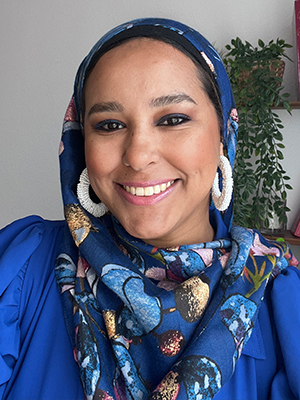

MELAZA


Mercedes Jabardo
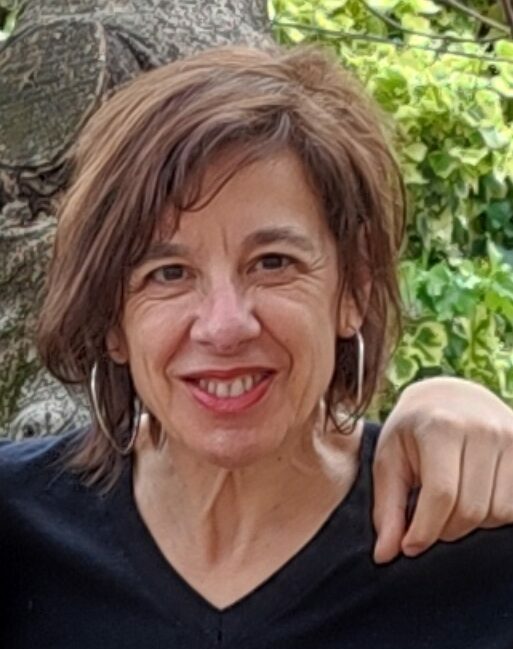

Chaimaa Boukharsa is a philologist with a degree in Arabic and Islamic Studies, with a Master’s degree in Cultural Diversity from the University of Granada (UGR). She specializes in gender equality, decoloniality and cultural diversity. As co-founder of the media Afrocollectiva, she has participated in various workshops and lectures on cultural diversity, feminisms, decoloniality and Islamophobia. In recognition of her work, she was awarded the ODA Prize for new media creation in 2022.
Melaza is a collagist, performer and Afro-Caribbean blogger. She is also a border migrant in Seville, a city marked by its history as a protagonist of colonialism and slavery. Specialising in human rights and Afro-Caribbean Afro-diasporic interculturality, Melaza combines her academic training with critical artistic practices of decolonial and anti-racist resistance such as coordinating exhibitions of collages with three-dimensional artefacts, crafting Afro-descendant masks for her town’s carnival, and composing songs and performances of memory and historical reparation.
In addition to her artistic work, Melaza is a lecturer on reggaeton as an Afro-diasporic cultural asset of the Caribbean from a decolonial viewpoint of human rights and dignity.
Founder of AFROCULTO CARIBE in 2020, Melaza uses art as a means of inhabiting the colonial wound and reclaiming the ethno-racial identity fracture. Through her collages, writing and performances she seeks to offer an irreverent response to the coloniality and anti-Caribbeanness that still suggestively persist. Above all, she explores the boundaries between the stereotypes that exotify women of African descent in the West Indies and their reinterpretation in eroticism as a means of agency and autonomy. Indeed, her experience as a migrant in Spain, a country with a deep colonial legacy, has sharpened her focus on using ancestral pain as a source of power.
Mercedes Jabardo holds a PhD in Social Anthropology and is a lecturer in the Department of Social and Human Sciences at the Miguel Hernández University of Elche, where she teaches History of Cinema in the Audiovisual Communication degree and in the double degree in Audiovisual Communication and Journalism. She also teaches Black Thought and Feminism(s) in the Master’s Degree in International Relations and African Studies at the Universidad Autónoma de Madrid. She has written on black diaspora, Senegalese migration in Spain and black feminism. In 2012 she published Feminismos Negros. An Anthology.
Roundtable: "(In) Female Version: Conversations on Female Representation in North African Cinema"
- 30 MAY, THURSDAY
- Espacio Lia.me
- Mode: On-site
- 12:30 - 14:30 (CET)
- Language: FRENCH - Simultaneous translation to SPANISH
- Moderator: Alejandra Val Cubero
- Speakers: Azza Chaabouni (researcher, programmer; DOC House, Tunisia), Lina Sualem (filmmaker, France-Palestine-Algeria), Leila Kilani (filmmaker, Morocco) & Farida Benlyazid (filmmaker, Morocco)
Conversations on Female Representation in North African Cinema
We delve into conversations that explore the need to make visible the female experience in North African cinema and the efforts of its filmmakers to create more realistic and diverse representations. This dialogue will focus on the challenges faced by female filmmakers and practitioners in an environment marked by industry fragility and gender bias, as well as the impact of challenging stereotypes and strengthening the role of women in society.
PARTICIPANTS
Alejandra Val Cubero



Azza Chaabouni
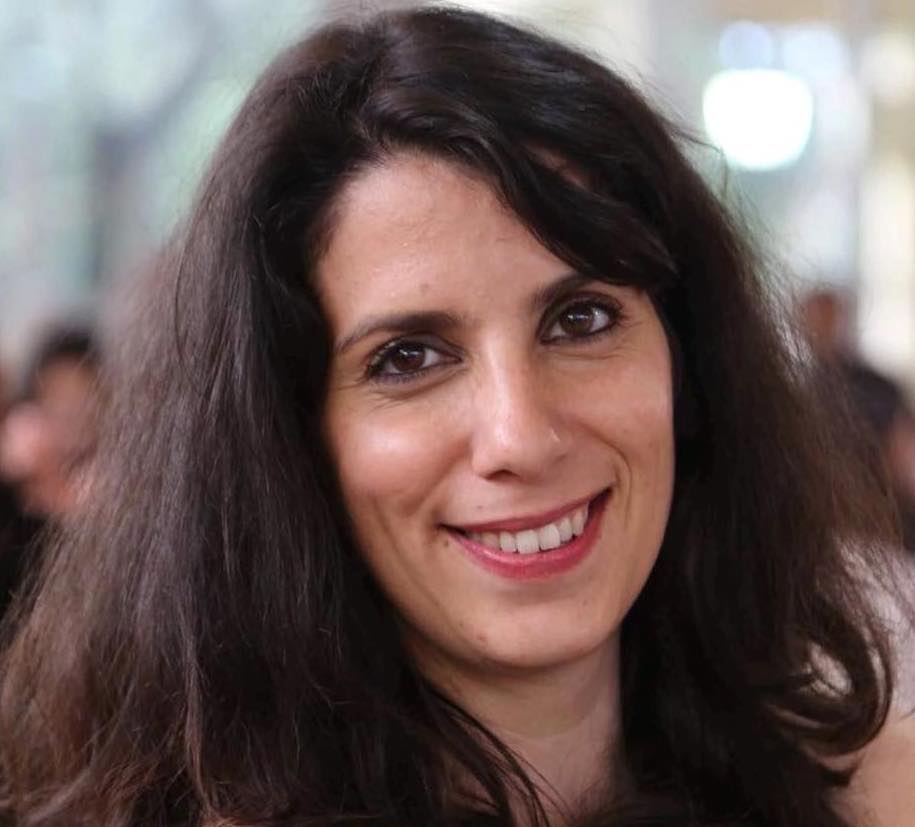

Lina Soualem
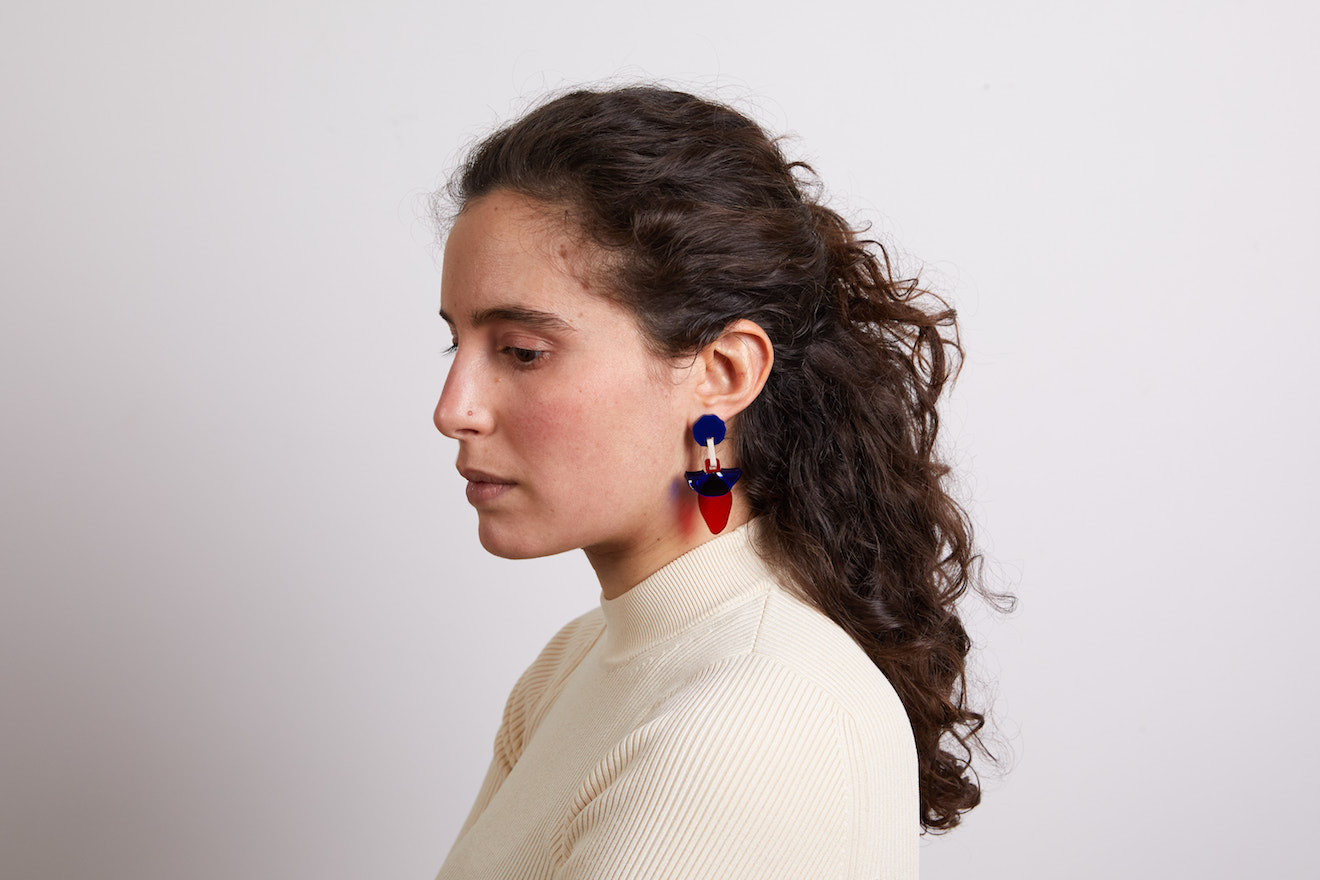

LeÏla Kilani
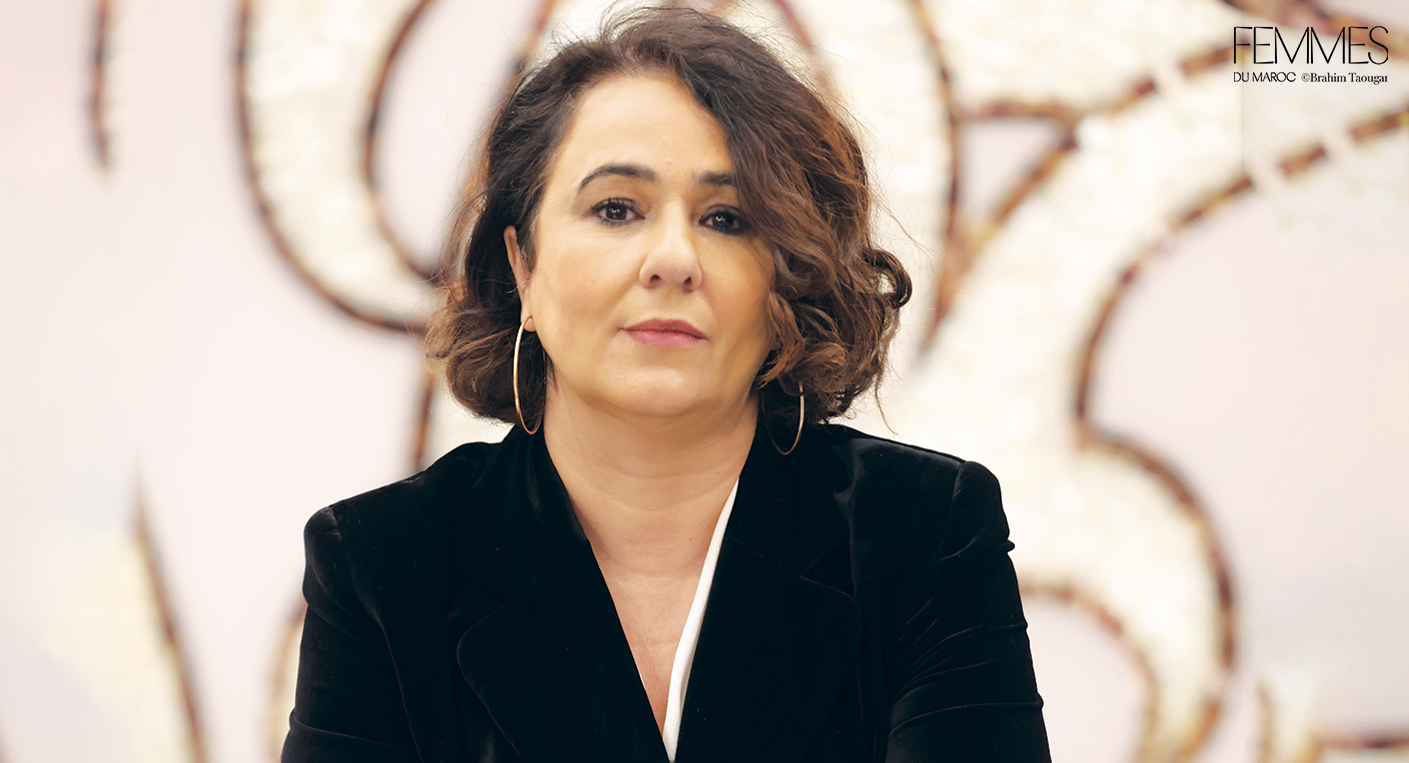

Farida Benlyazid
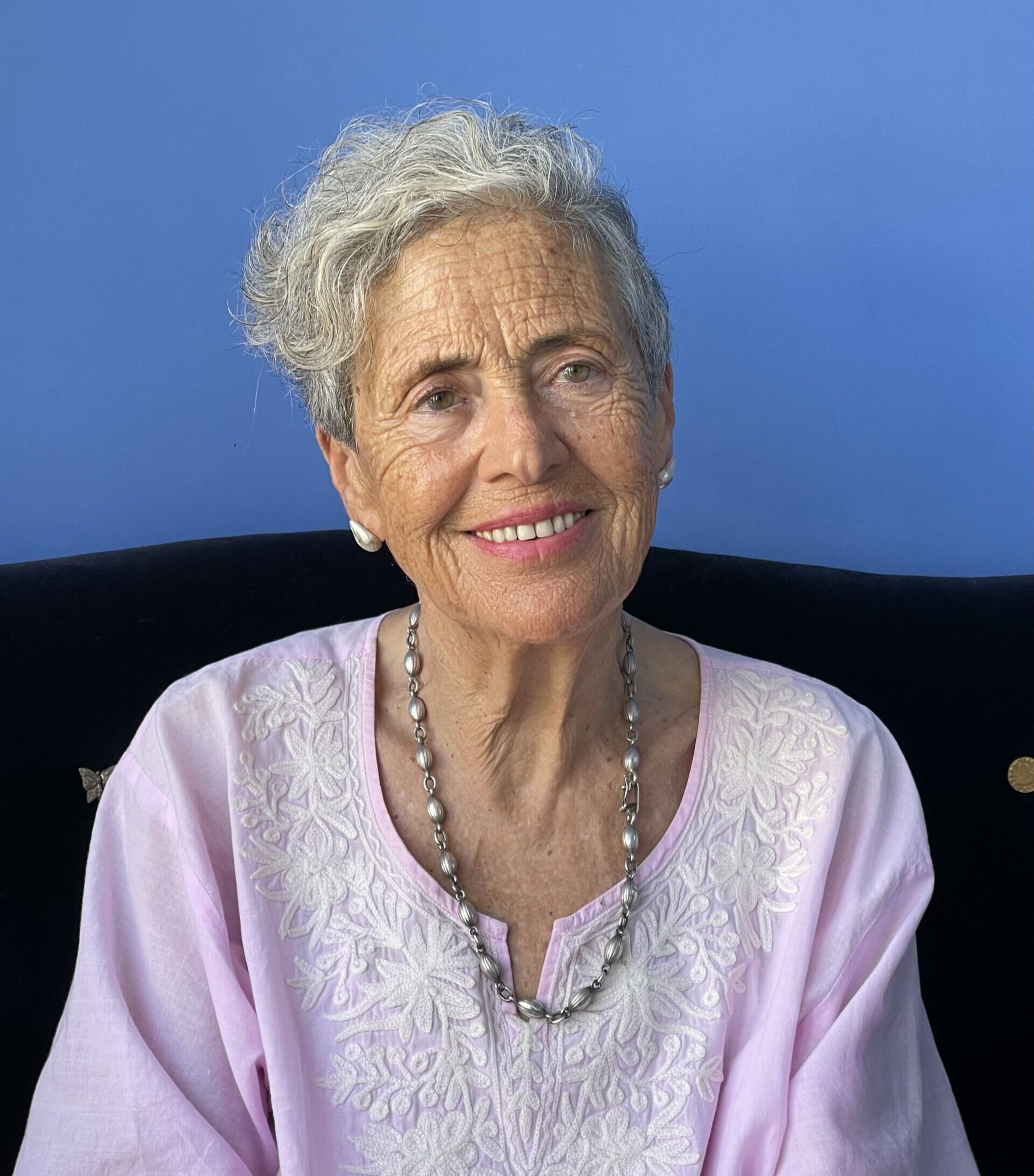

Alejandra Val Cubero is a full professor of Audiovisual Communication at Carlos III University of Madrid and a member of the Tecmerin research group, as well as the Gender Studies Institute of said university. Her experience as a researcher has led her to reside in various countries, including the United States (Harvard University), India (Jawaharlal Nehru University), Afghanistan, and the United Arab Emirates (Zayed University), where she has conducted studies on film and gender, specializing in North African cinema. In line with these interests, she has made significant contributions to the field with several articles, addressing topics such as Algerian directors, contemporary Moroccan cinema, and women’s participation in Tunisian cinema and the Arab revolution.
Azza Chaabouni is a Tunisian lecturer-researcher at the Department of Film and Audiovisual Studies at ISAMM (Tunis). She is a former editor, independent film programmer and works as an expert and consultant on film projects, as well as for national and international cultural organisations.
Her research work focuses on the cinemas of Africa, the Arab world and its diasporas from a socio-anthropological approach. She is interested in the trajectories of filmmakers whose work focuses on notions of memory and identity, the collective dimension within cinematic creative processes, as well as transformative efforts within the film “industry”.
Since 2014, she has been dedicated to supporting emerging filmmakers as director of programmes such as Takmil/JCC, خطوات Ciné Par’Court and MedWIPS. She also served as a mentor, reader and juror for different organisations such as CNCI, DFMI, AFAC, IDA, IDFA, DOX BOX, Between Women Filmmakers Caravan.
She is a founding member of Doc House-Tunisia and recently participated in the development of the Durban FilmMart Institute’s Future Mentors programme.
She studied film at Cinecittà-Roma and completed a Master’s degree in Social and Cultural Anthropology in Tunis. Her doctoral thesis work focuses on the Transnational Collective of Arab Women Filmmakers. Rawiyat-SIF .
French-Palestinian-Algerian filmmaker and actress, born and based in Paris. After studying History and Political Science at La Sorbonne University, Lina worked as a programmer for the International Human Rights Film Festival in Buenos Aires. Lina’s debut feature documentary Their Algeria premiered in Visions du Réel International Film Festival 2020. Their Algeria received more than a dozen awards, such as the First Film award in CINEMED, the Best Arab Documentary award in El Gouna Film Festival, and the Best Documentary Award at Cinemania Film Festival 2021. Lina acted in three feature films directed by Hafsia Herzi, Hiam Abbass and Rayhana. In 2020, she worked as a researcher and writing coordinator on the series OUSSEKINE (Disney+). Her second feature length documentary, Bye Bye Tiberias premiered in 2023 at The 80th Venice International Film Festival, then got selected at TIFF, BFI London Film Festival, Chicago International Film Festival, IDFA, DOC NYC, RIDM, Palm Springs & more. The film received several awards such as the Best Documentary Award at the BFI and the Jury Prize at the Marrakech International Film Festival. Bye Bye Tiberiaswas chosen to represent Palestine at the Oscars 2024 and was nominated as Best Documentary at the 2024 Film Independent Spirit Awards.
Filmmaker, producer and screenwriter Leïla KILANI (1970, Morocco) studied economics and Mediterranean history and civilisation at the École des Hautes études en Sciences Sociales in Paris. She worked as a freelance journalist before turning to cinema. He has made documentaries on the life of immigrants in the port city of Tangier and on the repressive regime of Moroccan King Hassan II. Kilani has won awards for his work, including Best Director at the Taormina International Film Festival in 2011, and the Special Jury Prize at the Brussels International Independent Film Festival for Sur la planche . Leïla Kilani’s latest long-awaited fiction, Indivision, (2023), premieres in Spain at this year’s FCAT and is included in the Festival’s official section for feature films, Hypermetropia.
Farida Benlyazid is a Spanish-Moroccan screenwriter, director and producer born in 1948 in Tangiers. She graduated in Modern Humanities from the University of Paris 8 in 1974, and then continued her training at the Ecole Supérieure d’Etudes Cinématographiques in Paris between 1975 and 1976.
As a producer, she participated in the making of “Une brèche dans le mur” in 1977 and “Poupées de roseaux” in 1980 by Jilali Ferhati. She has also written screenplays for several productions, including Jilali Ferhati’s “Poupées de roseaux” in 1979, “Badis” in 1988, and “A la recherche du mari de ma femme” in 1991. In 2020, he wrote the screenplay of “Fatema Mernissi, la Sultane inoubliable” for A. Tazi.
In her career as a director and producer of fiction feature films, she has excelled with works such as “Une Porte sur le ciel” in 1989, “Keid Ensa” in 1998, “Casablanca Casablanca” in 2001, and “La vie Perra de Juanita Narboni” in 2004. He also produced “Frontieras” in 2012 for Cinételema.
In television, he has made TV films for the Moroccan channel 2M, such as “Nia teghleb” in 2000, “Boukma” in 2001 and “Secreto de familia” in 2008. He has also ventured into the documentary genre with works such as “Identity of women” in 1980, “Aminata Traore, a woman of the Sahel” in 1994 and “Casanayda” in 2005.
Between 2013 and 2017, she produced a series of documentaries for Dounia Productions, including “Tamy Tazi, with time” and 10 documentaries on Amazigh music in all regions of Morocco.
Presentation of the book ¨Horizonte¨, by María Igleasias
- 26 MAY, SUNDAY
- Espacio Lia.me
- Mode: On-Site
- 11:00 (CET)
- Language: SPANISH
- Presented by: Ruth de Frutos García
Ketu Simo crossed Nigeria, Niger and the Sahara on foot, leaving the friend who had died in his arms buried in the dunes.
But he does not give up and, from Morocco, he manages to swim to Ceuta. Ketu Simo is a young Cameroonian who is looking for a better future; his mother is a teacher and his father is a businessman. He leaves his country after his studies are frustrated when his scholarship is stolen due to corruption and given to the son of a high official. But now, back on the mainland, on the other side of the Mediterranean, he is forced to work with other immigrants in the greenhouses. And there he rebels, refusing to follow a destiny that seems to have been written in advance. Thanks to the help of a family who takes him in, he studies International Relations and starts working in diplomatic offices. He soon discovers a forgotten project that could change the known world and the inequality that governs it: the construction of a bridge, across the Strait of Gibraltar, linking Africa and Europe.
That will only be the beginning. There will be many problems and difficulties that Ketu, his friends and the emerging Pan-African Awakening movement will have to face. But now, at last, a new Africa, young and excited, is on the move. And the bridge, that common dream of so many, can begin to appear on the horizon…
María Iglesias gives us the novel that, without knowing it, we were all waiting for. With a real basis, true facts and a project, the bridge across the Strait of Gibraltar, which is still there, latent, this is the story of so many people on both sides of the Mediterranean who live and survive, fight, breathe and work for an equality that has not yet arrived but which, between us all, is within reach. And all this with narrative agility and characters that touch your soul. In short, a novel not to be forgotten.
PARTICIPANTS
MARÍA IGLESIAS
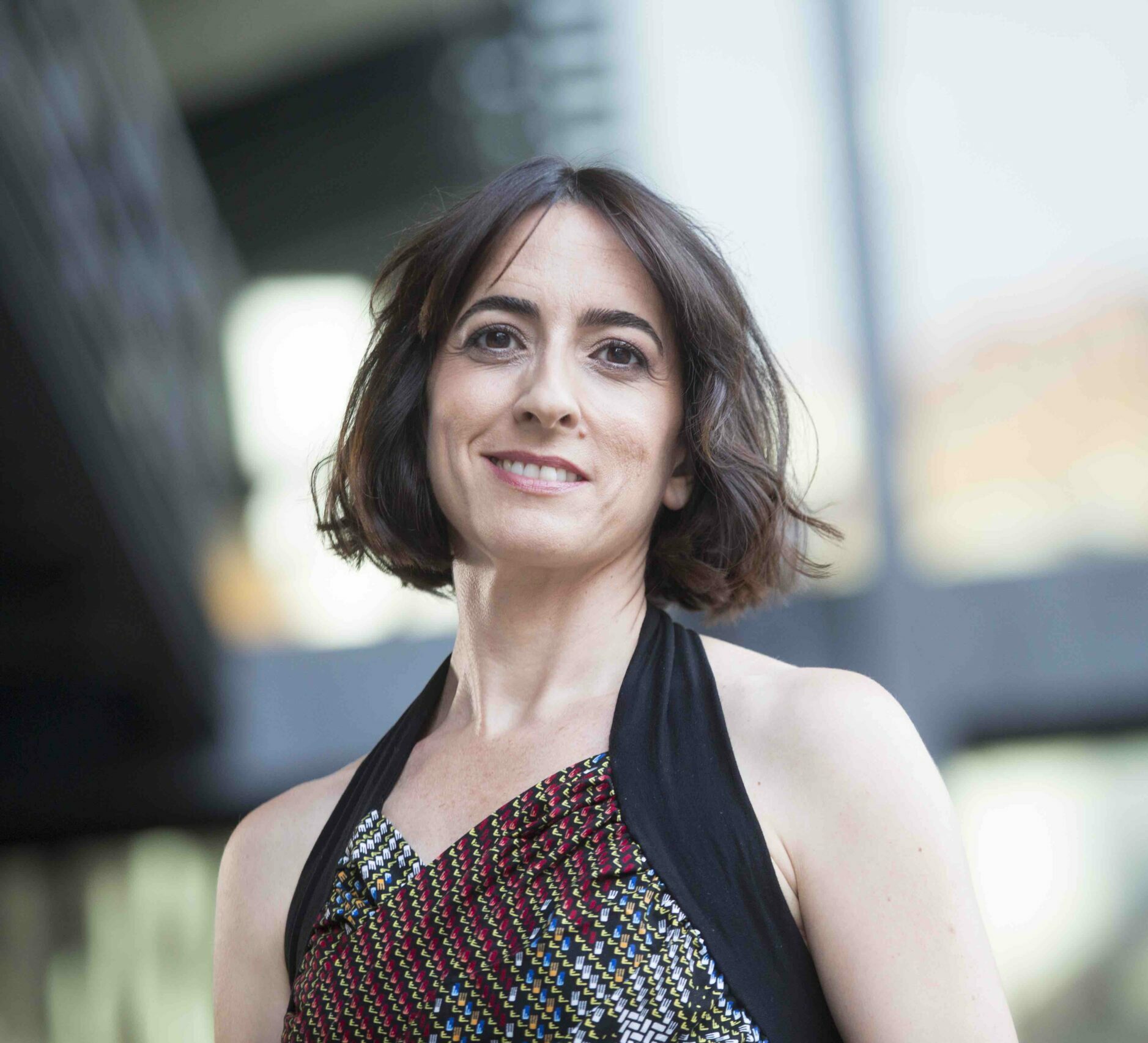

RUTH DE FRUTOS
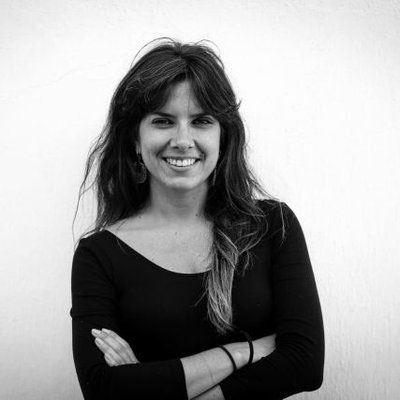

A writer and journalist with more than a decade of experience, she works as a columnist for elDiario.es and as an editor specialising in international politics, migration and human rights. Previously, she was a current affairs analyst for Canal Sur Radio and collaborated with media such as Público, SER, EFE, Canal Sur TV, Paramount Comedy Channel, Diario de Sevilla and ARTE.
In 2019, she received the VII Francisco Ayala Narrative Prize for her work “Plata” and in 2016, the XXV Communication Prize of the Seville Press Association, as well as awards for the documentary “Contramarea”. As an author, her novels “Horizonte”, “El granado de Lesbos” and “Lazos de humo” stand out. She also created the illustrated album “Vaho” with the artist Irene Mala, and participated in collective books such as “El ADN de la Memoria” and “Comunicación y desarrollo en la sociedad global de la información”.
Graduate in Advanced Studies in Literature and Communication, her research focuses on “Journalism and literature, according to Mario Vargas Llosa”. She teaches digital journalism workshops at Campus Universitario EUSA Seville and collaborates as an academic advisor at the International Film Festival and Common Memory of Nador.
Ruth de Frutos, journalist and researcher specialising in human rights and feminism, works as an international consultant for the IOM and UNESCO, as well as being a journalist for various media and a researcher at the University of Malaga. She holds a PhD in Journalism from the University of Malaga, with a thesis on media-cultural indicators, and a Master’s degree in International Cooperation and Development Policies. She also holds a degree in Journalism from the University of Valladolid and has worked at the UNESCO Centre in Turin. She founded La Poderío, an Andalusian feminist media, and has received awards such as the I Premio de Periodismo Social Alberto Almansa and was a finalist for the IX Premio Internacional de Periodismo Colombine. De Frutos writes regularly for La Poderío and collaborates with other media such as Píkara Magazine.
Presentación del libro ¨Farida Benlyazid and Moroccan Cinema¨ con su autora, de Florence Martin
- 30 MAY, THURSDAY
- Espacio Lia.me
- Mode: On-site
- 10:00 (CET)
- Language: SPANISH & FRENCH - Simultaneous translation to SPANISH
- Presented by: Pablo de María
This book is an attempt to right a grave injustice by focusing on a free, spiritual and inventive Moroccan woman filmmaker who is little known outside Morocco, where she is a cultural icon and revered lady filmmaker.
Farida Benlyazid has transgressed the rules of Moroccan cinema, culture and Western feminism in distinctive ways throughout her life. She decided early on that she would be a director, became the first woman producer and the first woman to film a kiss (in “A Door to the Sky”, 1988) in Morocco. A pious Muslim who has been married four times and rejects orthodoxy and religious dictates, she is a politically committed intellectual who has written articles in Spanish and French in defence of women and cinema, as well as numerous film scripts.
The narrative invites us to explore Farida’s trajectory along a journey that begins in Tangier, passes through Paris where she studies film, returns to Tangier and from there embarks on new projects, shooting films all over Morocco, and even on one occasion in Mali. Tangier remains a constant home and a crucial point in all his cinematographic works.
It also examines and contextualises her work in at least four areas: 1) the socio-political-historical development of Morocco and its profound mutations as an independent country from 1956 to the present day; 2) the impacts of drastically evolving film technologies in a third world economy and the resulting forms of adaptation and creativity in her films; 3) the Muslim cultural and spiritual landscape in which Benlyazid’s cinema was born and evolved; 4) the intersectionality of gender, ethnicity and class in her filmmaking. In addition to this familiar and multifaceted academic approach, it is complemented by interviews with the director (conducted over several years in Tangier) and with people who have worked with her throughout her career (for example, Jillali Ferhati, Abderrahmane Tazi, Fatima Loukhili, Fayçal Al Gandouzi, Munir Abbar), members of her family (e.g. Kenza, Ayda Diouri, Abdelhaye Adbib) and film critics (e.g. Ahmed Boughaba, Abdellilah Jaouhary).
PARTICIPANTS
Pablo de María
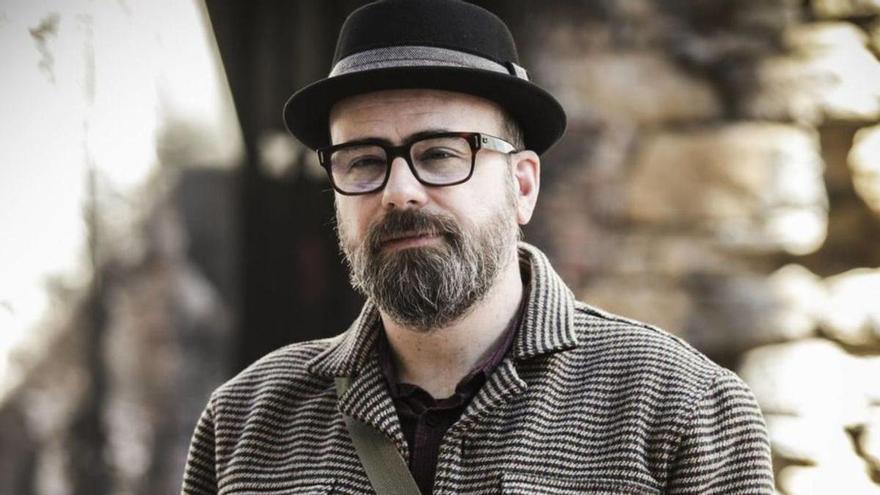

FLORENCE MARTIN


Pablo de María Díaz is artistic director of the Contemporary Audiovisual Week of Oviedo (SACO), curator of different multimedia installations at the Museum of Fine Arts of Asturias and contributor to the Radio 3 programme, Tres en la carretera. He is also a freelance programmer, coordinator of the cycle Dialogues between cinema and painting at the Museum of Fine Arts of Asturias and collaborator of the Princess of Asturias Foundation. He has been a jury member at events such as the EURIMAGES award at the Seville European Film Festival, the Vila do Conde International Short Film Festival, the New Filmmakers Award at the Gijón International Film Festival and the LBGTIQ Festival at the Niemeyer Centre.
Florence Martin is Dean John Blackford Van Meter Professor of French Transnational Studies at Goucher College. She has published internationally on Maghrebi and French and francophone cinema. Her most recent authored publications include Moroccan Cinema Uncut: Decentred Voices, Transnational Perspectives, co-authored with Will Higbee and Jamal Bahmad (EUP,
2020), and Screens and Veils: Maghrebi Women’s Cinema (IUP, 2011). Her latest book, Farida Benlyazid and Moroccan Cinema (Palgrave MacMillan) has just come out in March 2024.
